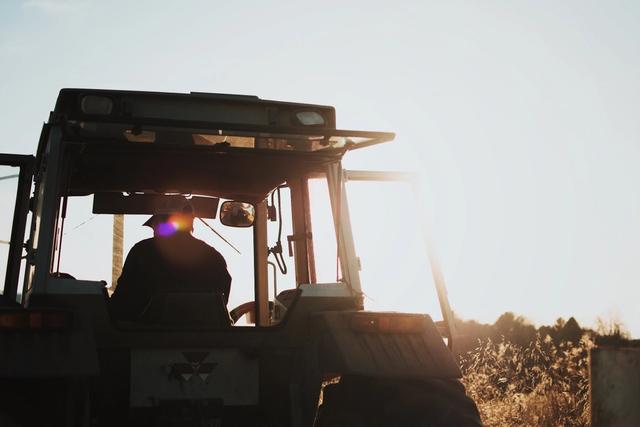How Farmers in Ireland Can Make the Most of the Basic Payments Scheme
Peter O'Flanagan
Chief Executive Officer
An agricultural subsidy can be defined as “a government incentive paid to agribusinesses, agricultural organisations and farms to supplement their income, manage the supply of agricultural commodities, and influence the cost and supply of such commodities.” Governments worldwide provide over $700 billion a year in total support to the agricultural sector. The vast majority of this fund ($536 billion) finds its way into the pockets of producers - and for good reason.
These subsidies recognise the unique challenges that producers face - and the vital role they play in society to ensure we all have enough food on the table. Not only is farming extremely weather dependent; agricultural processes require significant investment from producers in expensive equipment, inputs and labour before profit can be generated - who must also contend with time delays between shifts in demand and supply.
For most farmers in Ireland, one subsidy, in particular, provides a large proportion of their income: the Basic Payment Scheme (BPS).

Basic Payment Scheme
The BPS - which replaced the Single Payment Scheme on 1 January 2015 - is an agricultural subsidy scheme of direct payments to farmers under the Common Agricultural Policy (CAP) governed by Regulation (EU) 1307/2013. As the biggest of the rural grants and payments that provide help to the farming industry, the BPS provides a safety net for farmers by supplementing their main business income.
Under the BPS, eligible applicants receive a single annual payment based on the number and value of the farmer's payment entitlements - rather than output. When the scheme was implemented in 2015, eligible farmers were allocated payment entitlements.
According to the European Commission: “In general, each eligible hectare gave the right to one entitlement (although some European Union countries applied limitations on the number of entitlements that could be allocated). Support under the BPS is then granted annually to farmers who have payment entitlements upon "activation" of these entitlements. This activation is done annually by declaring eligible hectares with an accompanying number of payment entitlements.”
A farmer who meets the scheme's criteria must also comply with greening practices and the cross compliance conditions - which aim to ensure the safe production of food, the welfare of animals, the sustainable use of land, the maintenance of natural resources and limit climate change.
Access our payments platform
Who is eligible for the BPS
As a member of the European Union, applicants in Ireland are eligible for the BPS, provided you manage land and are involved in an agricultural activity. Under the BPS, a ‘farmer’ is a person/group of people or a business that does at least one of the following agricultural activities on their holding:
- Produces, rears or grows agricultural products – including harvesting, milking, breeding animals and keeping animals for farming purposes.
- Keeps some land in a state suitable for grazing or cultivation by keeping it clear of any scrub that can’t be grazed (sometimes known as ‘dense scrub’).
Farmers who receive BPS payments may also be eligible for a top-up called the Greening Payment - a subsidy that helps to protect the environment and tackle climate change.
Your BPS application is also used to apply for payment under other relevant schemes, including:
- Areas of Natural Constraints and Areas of Specific Constraint (Island) Schemes
- Protein Aid Scheme - there is no need to apply separately for this scheme
- Green Low-Carbon Agri-Environment Scheme (GLAS)
- Beef Data and Genomics Programme
- Organic Farming Scheme
- Continued Participation in the Young Farmers Scheme
How to apply for the BPS
Farmers can apply online or by paper for the BPS once a year – between March and May – with payments beginning in December. This includes Young and New Farmer applications. Applicants are encouraged to apply as soon as possible to give them enough time. Penalties apply for applications submitted after the May deadline.

You must declare the following:
- All agricultural land parcels and areas on your holding.
- The ‘land use’ and any non-agricultural features that can’t be applied for.
- The eligible land you are using with your entitlements (which must be at least 5 hectares).
- The number of entitlements you want to use to apply for payment (which must be
- at least 5).
Payment rates
Under the scheme, you are paid per eligible hectare of land farmed for which you hold entitlements. The maximum rate you are eligible to be paid per hectare is determined by the value of the entitlements you hold.
The number and values of entitlements you hold depends on several factors, including:
- Payment rates and the number of entitlements received under previous schemes.
- Adjustments each year to move values towards the national average.
- Transfers of entitlements between farmers.
Each entitlement held must be supported by a hectare of eligible land farmed to qualify for payment. The value of each entitlement is used to calculate the BPS payment.
The BPS payment and the Greening Payment - which is approximately 44% of the Basic Payment - are added together to form the total direct payment. Entitlements can also be transferred to other farmers.
The maximum annual payment that will be granted to a farmer under the BPS - excluding the Greening Payment - is capped at €150,000. Payment will not be made under the BPS where the total is less than €100.
If you do not meet all of the scheme’s criteria, you may receive a reduced payment or no payment.
Your exposure to currency risk
Farmer’s in Ireland whose application for the BPS is successful will receive a lump sum payment of euros. These vital funds are often used to make purchases that expose them to currency market risk - including importing - or selling - machinery and other supplies from abroad and exporting goods to international buyers and shippers. They may also employ an international workforce who wish to receive payment in a foreign currency and repatriate overseas. These international payments - especially if made regularly - can incur significant costs if a poor exchange rate is agreed, while costly transfer fees from banks can damage your profits.
Much like farming, currency trading is a 24/7 business. Therefore, the value of the euro against other currencies is constantly changing - not just daily but by the minute. Why do they fluctuate in value? Currencies strengthen and weaken each day because banks and investors purchase huge volumes in response to political and economic news. Positive news about a country typically causes the value of the currency to rise (“strengthen”), while bad news causes it to fall (“weaken”).
We also know when they might move because we often know the timing of political events that might influence them, and the economic calendar shows us when influential economic data will be released. However, there will also be news that happens without warning - anything from a US president tweeting late at night to a fall in the price of bauxite.
What we cannot predict – and no one can – is whether they will move up or down or by how much. Even slight fluctuations can make a big difference to the amount of money that arrives in your business’s overseas account. In some instances, the impact of the political and economic variables that influence exchange rates can be severe, as has been proved in recent times.
For example, in November 2021 the euro cratered as a resurgence of Covid-19, European Central Bank policy divergence and political uncertainty converged. By 23 November, the common currency was down 2.6% on the month and 7.8% year-to-date against the dollar, and has also weakened against other major currencies.
The emergence of the new Omicron coronavirus variant is perpetuating the impact of the pandemic on currency markets. And while the wave of Omicron appears to be milder according to preliminary studies, concern remains that the sheer number of cases could overwhelm hospitals - yet more uncertainty that’s keeping the euro pinned down.
This has brought the need to seek the services of a currency specialist into sharp focus for many producers in the Irish farming industry.
Clear Treasury

Clear Treasury are experts providing clients with the knowledge and tools they need to operate across borders. Against the backdrop of a global pandemic, this guidance and expertise are more crucial than ever. Our relationship-focused approach achieves long term success and is underpinned by our dedication to excellent customer service.
We understand how technology is at the core of how businesses operate in the modern digitally-enabled world. This has enabled us to develop a technology platform that seamlessly integrates our products and services into your ecosystem - removing the complexity and risk involved in making international payments.
Our knowledge and experience allow us to provide our clients with solutions and guidance that help their business thrive when engaged in international trade, both through our team of experts and our innovative technology - and opening an account to access this specialist service is quick and easy.
You will be assigned a dedicated account manager who can help you to plan and establish a proactive hedging strategy. There’s no “one size fits all” approach to protecting your bottom line from the threat of currency risk. Therefore, a bespoke hedging strategy that aligns with your requirements, commercial context, and risk appetite will allow your business to execute effective solutions that sync with its aims. This dedicated expert can provide guidance and support on tools to track, target or fix exchange rates for currency transfers to hedge against currency risk when making international payments.
Reece Dye, Head of Corporate Dealing at Clear Treasury underscores the importance of hedging against unexpected, expected or anticipated changes in currency exchange rates: “It’s common practice to allocate the Basic Payment to particular requirements for the year ahead. If a partial or full amount of your subsidy needs to be converted from euros to another currency, planning the currency exchange is vital - especially in the current economic climate. Having calculated the cost of a certain piece of equipment, for example, you must take the time to understand how to ensure its cost doesn’t increase when the time comes to pay – and the answer is hedging the currency. This proactive course of action allows you to lock in fixed costs for items ahead of paying, rather than leaving them exposed to market fluctuations - this is particularly important if you're paying for goods in instalments or laying down an initial deposit.”
Access over 35 currencies in one platform
Related Articles
Daily Analysis: GBP/USD Hits 14-Month Lows Amid Severe Economic Uncertainty
Our daily analysis of EUR, GBP and USD.
Read more
Weekly Round-Up & The Week Ahead
Our weekly round-up and a look at the week ahead for EUR, GBP and USD.
Read more
The Rise of B2B Cross-Border Payments
Businesses that wish to protect their overseas markets or expand their international trade, must innovate their payments processes internally, or in concert with a technologically advanced fintech provider. Read on to discover more about the rise of cross-border B2B payments and what your business needs to do to stay ahead.
Read more



